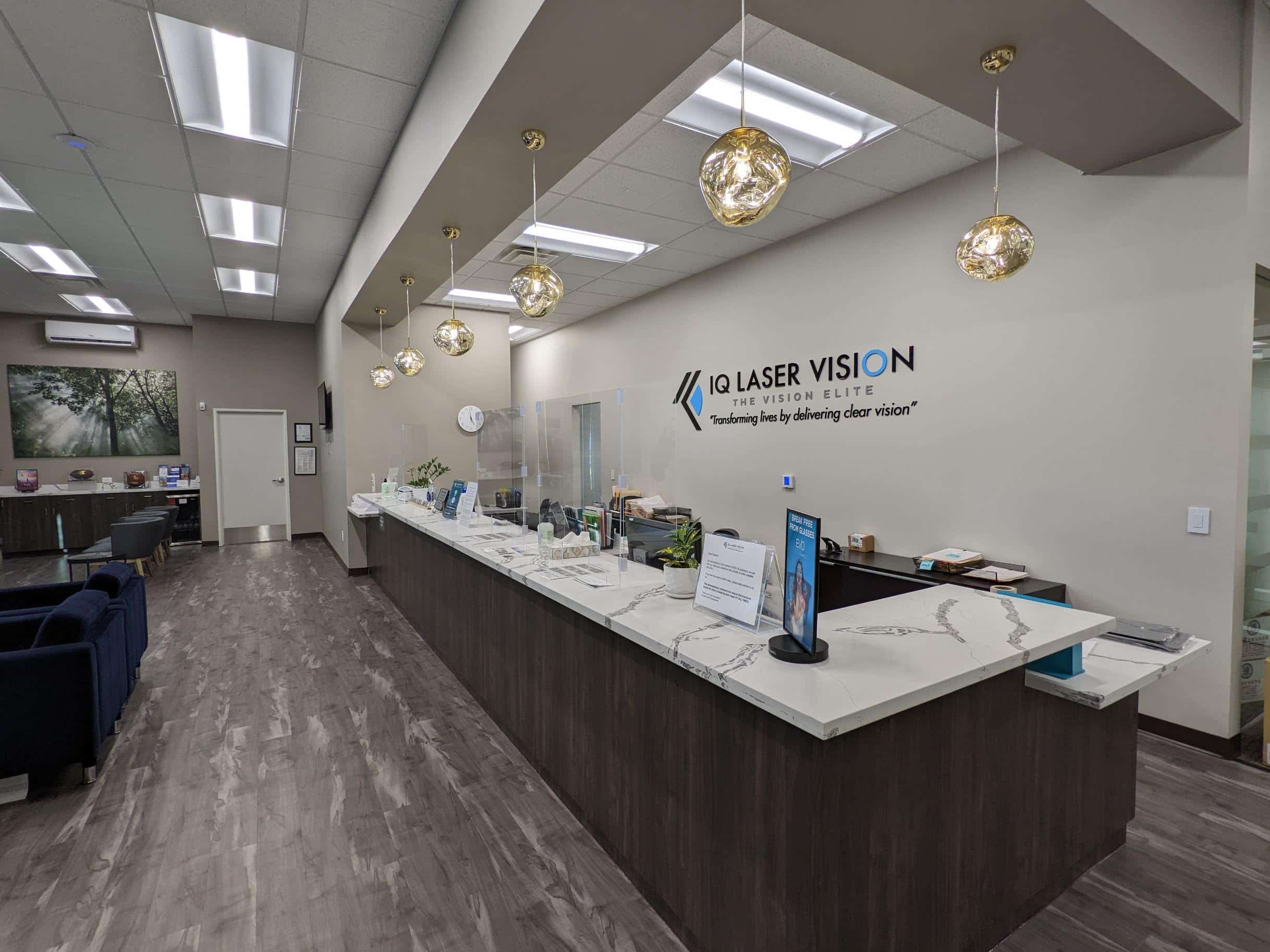We’ve said it before and we will say it again…and again and again. Contact lenses are bad for your eyes. Like, really bad. We’ve got the scoop on why, as well as the many complications that can happen as a result of wearing contact lenses.
Keep reading to save your eyesight from some nasty complications and to keep your vision healthy.
Contact lens use is pretty common among people who need some type of vision correction. In fact, globally, millions of people wear them (45 millionin the US alone!).One studyshowed that around one-third of those users have ended up at their doctor or hospital thanks to contact lens complications. And around 99% of contact lens users admitted to engaging in at least one risky contact lens habit.
Why contact lenses are bad for your eyes
Contact lenses are foreign objects that are placed on your eye. This fact alone means they should be handled with care. Contact lenses can createmicro-abrasions on your cornea, produceallergic reactions, and cause blood vessel growthinto your cornea if they block oxygen from reaching the surface of the eye. In extreme cases, this can lead tovision loss.
Contact lens use can also lead toGiant Papillary Conjunctivitis (GPC), which produces itching, eye redness, and an inability to continue wearing the lenses comfortably.
Introducing any bacteria to the contact lenses by touching them without washing your hands, or swimming/showering with them on your eyes can result in a type of inflammation known as Microbial Keratitis(which is really bad and considered one of thetop complications). This condition is caused by bacteria, viruses or parasites that enter the eyes and can result in blindness or even require acorneal transplant.
Another of thereally bad complicationsare corneal ulcersthat can arise from trauma or contamination to your eye. This serious eye condition can result in eye infections and corneal scarring. You may even need to go to the hospital for treatment because it’s a pretty serious problem that may lead to vision loss.
All that, and we haven’t even touched on the potential for dry eyesymptoms, the frustration of wearing contacts during allergy season, andblepharitis(which causes red, itchy, irritated eyes and flakiness around the eyelashes).
As you can see from the image above, complications can range from mild to extreme and affect your vision for the long-term without proper hygiene, treatment, and care.
Symptoms to watch for
If you use contact lenses, you should constantly be monitoring your eyes to ensure they are healthy and safe from any nasty complications that may occur.Symptomsto be on the lookout for include bumps beneath the eyelid, scratches or scrapes on your cornea, red, irritated eyes, corneal inflammation, irritation or infection.
Dry eyes, though typically not dangerous, are uncomfortable, and commonly associated with contact lens use. Pain in or around your eyes, sensitivity to light, blurry vision or discharge from your eyes are also signs that something is not quite right with your eyes. If you wear contact lenses and experience any of these symptoms, remove the lenses and contact your eye doctor.
Safe practices for contact lens users (source: American Optometric Association)
(You can print outthis handy infographicfrom the American Optometric Association to keep on hand for your reference).
If you insist on continuing to wear contact lenses (which we do not recommend), you should, at the very least, follow the safety instructions provided by the American Optometric Association. These include:
- Washing your hands with soap and warm water before handling lenses.
- Inspecting lenses thoroughly to ensure they are clean, with no nicks or jagged edges.
- Being aware of expiration dates and clean lenses only with fresh solution.
- Tuning in to eye discomfort and remove lenses immediately if you have vision changes, redness or any eye problems.
- Staying on top of your annual eye exams and lens replacement schedules
- Not stocking up on lenses no matter how good a sale you see—expired lenses are culprits that could cause major problems for your eyes
- Not using previously open packages of contact lenses
- Not swimming or showering while wearing contact lenses
- Not keeping contact lenses on your eyes any longer than you’re supposed to (and not reusing single-use lenses!)
But keep in mind that while proper use and safety techniques for contact lens use are important, risks are still inherent in their use—which is why we don’t recommend using contact lenses.
So what are your options for better vision without contact lenses?
Well, the solution some people turn to, even if less popular, is glasses. But because most people don’t like the hassle of carrying a pair of breakable, losable or otherwise destructible lenses around with them (or being hampered from living the life they want because of glasses), laser vision correction is by far the best option.
The long-term solution of laser vision correction such as LASIK or SMILE eye procedures eliminate dependence on glasses and contacts and ensure that you are able to live the life you want—on your terms. Plus they only take a few moments to complete and have minimal downtime and fast recovery so that you can be back on your feet, wearing makeup, heading to work, school and the rest of your life as usual—except actually seeing your world for real, without any external aids. (And hey, with financing options through IQ Laser Vision as low as $8 per day, monthly payment plans available through CareCredit or discounts through your insurance, laser vision correction surgery basically a no-brainer—a super awesome no-brainer!).
If you’re ready to ditch your contact lenses (we always recommend doing so before complications set in so that your eyes are healthy and ready for the life-changing transformation of laser vision correction) give our world-class expert team a call at 888-539-2211, or email us at [email protected].























